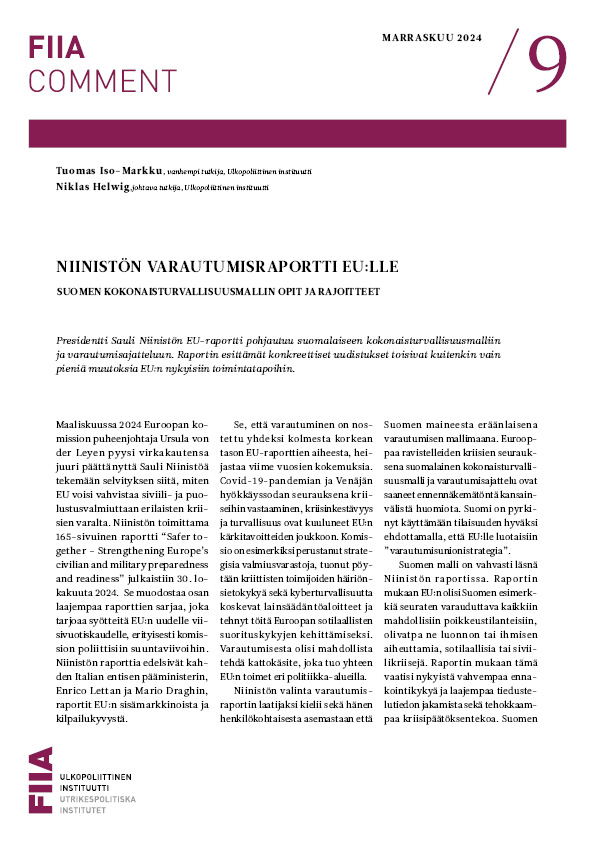Podemos is offering a serious alternative to the other left-wing parties and breathing new life into the rather stale political atmosphere in Spain, but it falls short of offering realistic solutions to foreign and European policy issues, which makes it difficult to beat the leading conservative party.
While Syriza is beginning its rule in Greece, a new left-wing party, Podemos, is rising rapidly in Spain. Recent polls show that this barely one-year-old party is already the biggest left-wing contender, and is gaining on the leading conservative party. In the Podemos party programme there are, among other ideas, the abolition of the Lisbon Treaty, a possible Spanish exit from NATO and, as in Greece, a renegotiation of the Spanish debt. Does this mean that Europe will get a new enfant terrible on its political map?
The rise of Podemos may seem sudden and merely a response to the economic situation, but it has deep roots in Spanish social activism. Since the late 1980s, the bipolarity of the Spanish political system has increased and the significance of parties other than the Socialists and the Popular Party has diminished.
Hand in hand with the tendency towards growing political elitism, social activism – predominantly in the form of widespread, non-violent demonstrations – has become an important extra-parliamentary tool for the general public. Since the protests against conscription in the early 1980s, through the Nunca maís and No a la Guerra in the early 2000s, up to the post-economic crisis Indignados movement in 2011, discontent on the streets has become stronger and more institutionalized. Podemos is a direct continuation of the Indignados movement. Its driving force is grounded in the same criticism towards the political and economic establishment and defence of public services that Indignados voiced in 2011, and the method of forming party policy is based on a similar ‘bottom-up’ approach that has its roots in the nationwide local assemblies and networks formed by the previous protest movements.
The rise of Podemos would not have been possible without the general crisis that besets the ‘old left’ and the complete failure of the socialist PSOE party to address the discontent in its own policymaking. The previous socialist government, led by José Luis Rodríguez Zapatero from 2004 until 2011, was blamed for the economic crisis, and the PSOE lost over four million voters in the last elections, compared to the previous elections in 2008.
Since then, the PSOE leadership has changed twice with no impact on party support. At the same time, the United Left party (IU) has dropped from its position as third biggest national party to the minor league with the small regional parties. Despite the difficult economic situation, it seems that the traditional labour parties with their trade union ties are not appealing to the growing precariat and unemployed.
If Podemos can gain governmental power, it would signify a small revolution for Spain. Podemos is primarily intent on reforming the Spanish political system. It advocates more direct democracy in the form of internet participation and referendums on major political and economic decisions, such as the status of the Spanish monarchy, Catalonian independence, and the Spanish debt. It also promotes strengthening public services that have suffered due to the strict austerity policy of Prime Minister Mariano Rajoy’s government, claiming that there is a need to regain public control over ‘strategic sectors of the economy’, namely telecommunications, energy, food, transport, sanitation, pharmaceutics, and education. In parallel with this socialization idea, Podemos wants to promote small and medium-sized businesses, seeing them as the key to economic recovery.
When it comes to Podemos’s European policy, it applies the same ideas proposed in Spain at the EU level. The party programme includes ideas on reforming EU institutions and promoting parliamentary control over them, combatting corruption, fiscal fraud and capital flight, and European-wide equality through harmonizing social benefit systems, as well as enhanced freedom of movement – something that is of paramount importance for over one million Spaniards that have left Spain in search of jobs since the economic crisis started in 2008.
This means that the party is not anti-EU, nor even anti-euro, but in favour of fiscal federalism and stronger burden-sharing between the EU member states. Notwithstanding its ideas on EU reform, Podemos does not have a clear foreign policy agenda. It proposes a referendum on the Spanish membership of NATO and urges recognition of the Palestinian State. Added to this, it emphasizes the need for a stronger Latin American and Mediterranean focus, an issue that has always been important for Spain.
However, Podemos’s direct and participatory method is not compatible with the quick and efficient responses that are often necessary in politics. For example, like its Greek counterpart, Syriza, Podemos has stated that it also opposes sanctions against Russia because it regards them as inefficient. Since Podemos strongly opposes any kind of military measures, but is vague about non-militant and non-economic alternatives, its policy boils down to mere opposition. This makes Podemos more of a paralyzing force than an innovative and reformist one.
Much can still happen prior to the parliamentary elections at the end of this year. Conservative voters have traditionally been partisan in Spain, whereas left-wing voters have been volatile. This time the left is more splintered than previously.
At present, Podemos is offering a serious alternative to the PSOE and IU with its innovative ideas and methods of direct participation at home, but it falls short of offering realistic solutions to foreign and European policy issues. Furthermore, the party still has a long way to go before it can beat the ruling conservatives, which would be necessary in order to realize any of its ideas. In order to do that, Podemos needs to focus more on delivering concrete solutions rather than vague criticism. Otherwise, the party will be just another enfant terrible, stumping feet and making noise.









